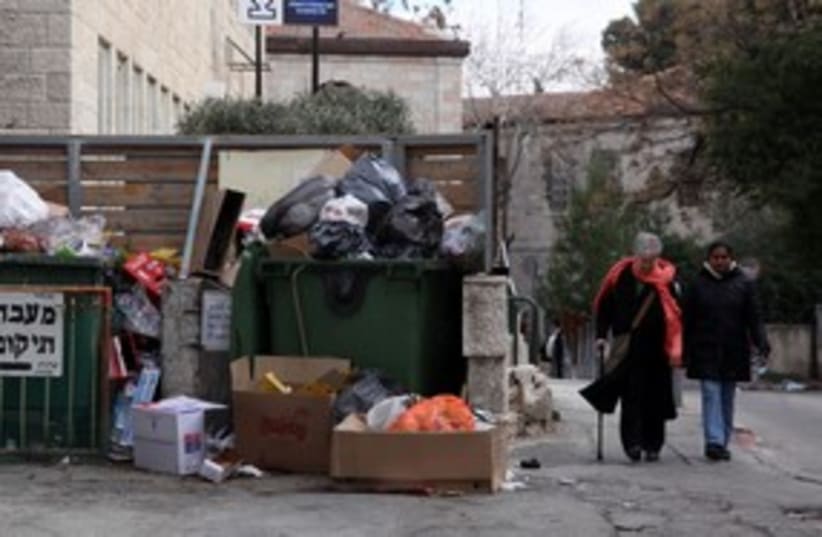The Union of Local Authorities decided Monday to continue the strike of municipal services, but announced that special education institutions would open. Special education institutions serving thousands of children with disabilities were shut Monday, drawing sharp criticism from Minister of Welfare and Social Services Moshe Kahalon. RELATED:Local Authorities begin open-ended strike Government approves free education plan “While I support the freedom for workers to take strike action, children with disabilities should not be part of this game,” said the minister, who was speaking at a press conference in Jerusalem showcasing the various programs and treatments his ministry provides for society’s impoverished and weakest populations.“It is already hard enough for parents who have children with disabilities and they should not be brought into this battle,” he said, adding that he planned to appeal directly to ULA Chairman Shlomo Bohbot.If the ULA was not responsive, Kahalon vowed to use the law to fight the decision, which left an estimated 146,000 children with disabilities stranded at home.Prime Minister Binyamin Netanyahu earlier called on the Union of Local Authorities to end their strike that saw municipal services and special education institutions shut down throughout the country Monday. Most of the mayors' demands, Netanyahu said, can be met within a short period of time."I call upon [the mayors] to end the strike. Most want to answer my request," he added.The prime minister, however, said that Israel will not expand its budget beyond the country's means, noting that 10 countries recently had their Standard and Poors rating lowered. "Ours was raised because of our responsible policies."The union said it is protesting a recent decision to increase the property tax (arnona) rate against the wishes of municipal authorities, as well as “populist laws and bills” that direct money away from education, student safety, transport, the environment, welfare, culture and pensioners.Opposition leader Tzipi Livni came out in support of striking local authorities during a Kadima faction meeting in Ramle on Monday.Accentuating that local authority leaders were trying to provide quality services to Israeli citizens, Livni accused the government of "acting petty in the face of their requests.""We need dramatic reform in public service, but the need for reform does not negate the duties of the ministers to act. They have a responsibility to the public," she said.Former journalist and neophyte politician Yair Lapid wrote on his Facebook wall that although the demands of striking local authorities are justified, their strike is not.The local authorities are correct, he wrote, "because [Interior Minister] Eli Yishai's property tax program is populist, harmful and designed to exempt his base from property tax.""The strike is not justified," he continued, "because if the Prime Minister promises to take care of a problem within four weeks, he should be given a chance."According to Lapid, the economic cost of each day of striking is 2.3 billion NIS. "Don't you want the court to examine the subject before allowing the nation to be paralyzed?" he wrote.The strike included all municipal services including parking inspectors, school buses, garbage collectors, welfare offices, security guards at educational institutions and inspections on meat and fish.Schools and kindergartens remained open, and the Education Ministry said it would help organize transportation with parents.
Local strike to continue, special-ed schools to open
PM says most demands can be met quickly; Kahlon slams earlier decision to shut down special-ed institutions; Livni, Lapid weigh in.
